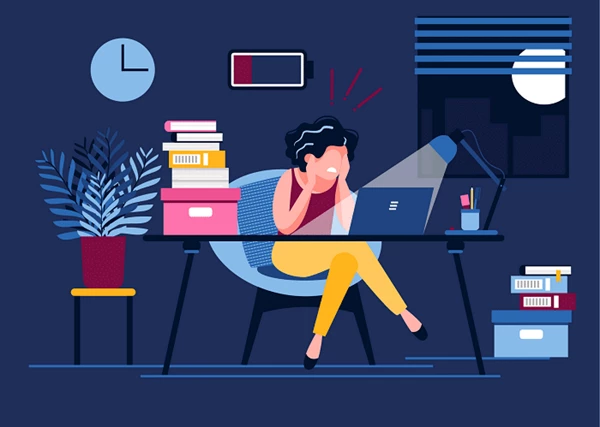Stress makes young people look and feel older
A study indicates that suppressing boredom at work has a negative impact on future productivity / Making the future too bright: How wishful thinking might lead us in the wrong direction
"There's substantial research that tells us stress makes older adults feel their age, or even feel older than they actually are" says Shevaun Neupert, corresponding author of the study and a professor of psychology at North Carolina State University. "And the literature tells us that when seniors feel older than they actually are, that is associated with a host of negative health outcomes." Nonetheless, there is a paucity of research examining this issue among younger adults (those in their teens, twenties, and thirties). Gaining a more profound comprehension of this phenomenon spanning all age groups may facilitate the development of interventions that safeguard our physical and mental health.
"This work may be particularly timely, as stress researchers are seeing an increase in the amount of stress younger adults are experiencing now, when compared to the amount of stress previous generations experienced when they were young."

In order to compile the data for this study, 107 younger adults between the ages of 18 and 36 (mean age: 20) participated. After completing a baseline survey, participants in the study responded to a detailed daily survey for eight consecutive days. The purpose of the daily questionnaires was to record the participants' level of stress, sense of control over their lives that day, and age as of that particular day.
"The key finding was that on days when study participants reported experiencing higher levels of stress than they normally did, they also reported looking and feeling older," Neupert says. "However, this was only true on days when study participants also reported feeling that they had less control over their lives than they normally did. "It's also worth noting that both the levels of stress and the levels of control were relative."
To put it another way, although an individual may claim to be relatively lowly stressed, researchers observed an impact if the actual level of stress exceeded the individual's usual reporting level. Similarly, participants were able to report feeling in control of their lives to a considerable extent; however, if participants reported feeling less in control than usual, this had an impact on the researchers.
"For one thing, this tells us that the phenomenon of stress making people feel older is not limited to older adults - it happens to young people too," according to Neupert. "It's also important because we know that experiencing chronic stress over time can have adverse effects, and that people generally report increasing levels of stress as they move from young adulthood to midlife -- their 40s and 50s," according to Neupert. "If these young people are already experiencing historically high levels of stress for their age, and that stress is affecting how old they feel, it will be important for us to pay close attention to the markers we use to assess stress-related physical and mental health for this generation."
Reference: Sofia E. Lee, Shevaun D. Neupert. The effect of control beliefs on the relationship between daily stressors and subjective age in younger adults. Mental Health Science, 2024; DOI: 10.1002/mhs2.56
End of content
Không có tin nào tiếp theo



